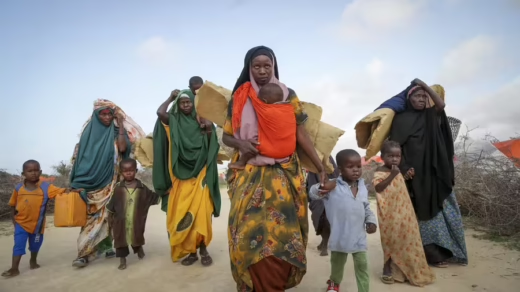
The Amazon rainforest, also known as the “lungs of the Earth,” occupies a position of unparalleled importance within the global ecosystem. Beyond its pivotal role in oxygen production and carbon sequestration, the Amazon rainforest is also a reservoir of biodiversity that sustains over 3 million species. However, its significance transcends the purely ecological – it also serves as a cultural and spiritual cornerstone for the indigenous populations whose identities and ways of life are intrinsically tied to its flourishing. Unfortunately, the situation in the Amazon has been rapidly destabilizing in recent years, with estimates saying that the forest is losing around 18 trees every second.
To resolve this problem, for the first time in 14 years, the eight member states of the Amazonian Forest Treaty of Cooperation were reunited at a summit in Belém, Brazil. They were also joined by the leaders of countries that harbor large tropical forests in order to prepare for COP28, which will be held in Dubai later this year. Last week, Brazilian president Lula de Silva announced,
“We want to prepare for the first time a joint document of all forest countries to arrive united at COP28, in the United Arab Emirates, so that we can seriously discuss with rich countries.”
This summit is convening in accordance with the wishes of Lula, who, emboldened by a 42% drop in deforestation during his first seven months in office, has sought international financial support for further forest protection. He wishes to stop illegal deforestation before 2030 and to conserve the indigenous lands that were violated by the mandate of the former Brazilian minister Bolsonaro. To execute this wish, significant changes have to be made, which led the leaders and ministers from eight Amazon nations to sign a declaration on Tuesday in Belém, Brazil, outlining plans to drive economic development in their countries while preventing the Amazon “from reaching a point of no return.”
Several environmental groups described the declaration as a compilation of good intentions with little in the way of measurable goals and timeframes. However, others lauded it, and Amazon’s umbrella organization of Indigenous groups celebrated the inclusion of two of their main demands.
Participating in the summit on Wednesday were the presidents of the Republic of Congo and the Democratic Republic of Congo, along with a representative from the president of Indonesia. France’s ambassador to Brazil, who represents the Amazonian territory of French Guiana, was also present. Additionally, an envoy from Norway, the largest contributor to Brazil’s Amazon Fund for sustainable development, was in attendance. All the national delegates collectively endorsed a comparable, albeit more concise, agreement compared to their counterparts from the previous day. This agreement, similarly lacking specific targets, primarily emphasized criticism directed at developed nations for their inability to fulfill commitments regarding substantial climate financing.
However, some climate change specialists like René Poccard-Chapuis, a geographer at CIRAD Brazil who was interviewed by TV MONDE info, encouraged the decisions taken in this summit, particularly the involvement of local town halls, declaring that it was a real turnaround at the local level. Meanwhile, other specialists like Bruna Santos, director of the Brazil Institute at the Woodrow Wilson Center, said the summit demonstrated “an effort to treat the Amazon as a regional agenda” and highlighted ambiguities in the priorities of Brazil’s government, including those related to oil exploration.
Written by Imane Moumen


